Humans
Sign up for our newsletter
We summarize the week's scientific breakthroughs every Thursday.
-
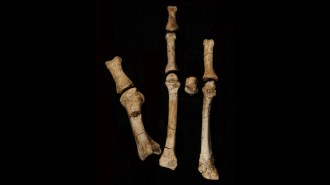 Anthropology
AnthropologyA foot fossil suggests a second early human relative lived alongside Lucy
Foot bones and other fossils have been attributed to Australopithecus deyiremeda, a recently discovered species that may shake up the human family tree.
By Jay Bennett -
 Science & Society
Science & SocietyGratitude can increase joy, even if it feels a little cringe
Like exercise, gratitude takes many forms. Finding the right practice, research shows, is up to the individual.
By Sujata Gupta -
 Health & Medicine
Health & Medicine‘Butt breathing’ could help people who can’t get oxygen the regular way
Takanori Takebe’s strange investigation into whether humans can use the gut for breathing has surprisingly sentimental origins: helping his dad.
-
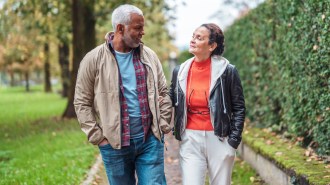 Health & Medicine
Health & Medicine3,000 steps per day might slow Alzheimer’s disease
In people at risk for Alzheimer’s disease, researchers linked minimal to moderate physical activity to a 3-to 7-year delay in cognitive symptoms.
By Meghan Rosen -
 Health & Medicine
Health & MedicineBuilding a better skin barrier
Skin is a barrier meant to keep small invaders out. Products making their way across it should boost that mission.
By Anna Gibbs -
 Health & Medicine
Health & MedicineA diet low in glutamate may ease migraines
People with Gulf War Illness found relief from migraines after a month on a low-glutamate diet, hinting at a new way to ease symptoms.
-
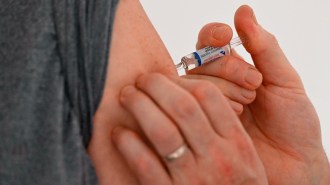 Health & Medicine
Health & MedicinemRNA flu vaccines are making their way through clinical trials
The mRNA platform offers the advantage of faster vaccine production, which could allow more time to decide on which flu strains to cover.
-
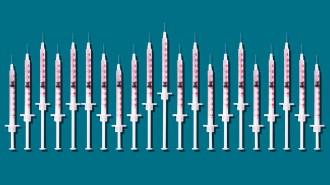 Health & Medicine
Health & MedicineIn animal tests, this needle-free insulin acted as fast as injections
Managing diabetes with injections is challenging. Joining insulin to a skin-penetrating polymer was as effective as shots at regulating blood sugar.
By Simon Makin -
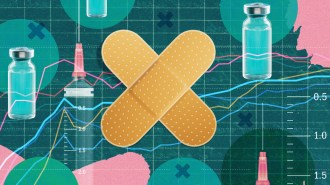 Health & Medicine
Health & MedicineEroding access to childhood vaccines jeopardizes health for all
Recent U.S. decisions about vaccines signal bigger changes to come that could threaten the foundation of the national childhood immunization schedule.
-
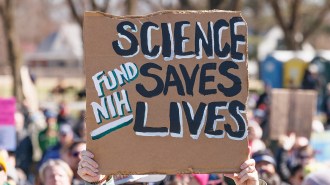 Science & Society
Science & SocietySee the alarming extent of NIH and NSF funding cuts in 2025
In 2025, the Trump administration froze or ended about 5,300 NIH and NSF research grants totaling over $5 billion in unspent funds, a decision that reshaped many fields of science.
-
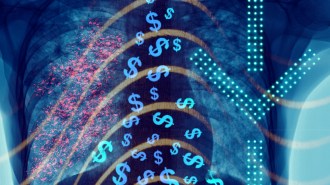 Science & Society
Science & SocietyFunding chaos may unravel decades of biomedical research
Battles between the Trump administration and academic institutions are putting important biomedical advances in limbo.
-
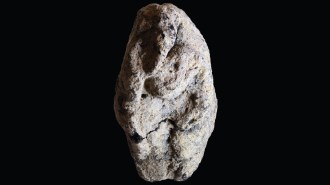 Archaeology
ArchaeologyA clay figurine unveils a storytelling shift from 12,000 years ago
A carefully crafted figure of a goose and a woman suggests that art reflecting spiritual beliefs entered a new phase among early villagers in the Middle East.
By Bruce Bower